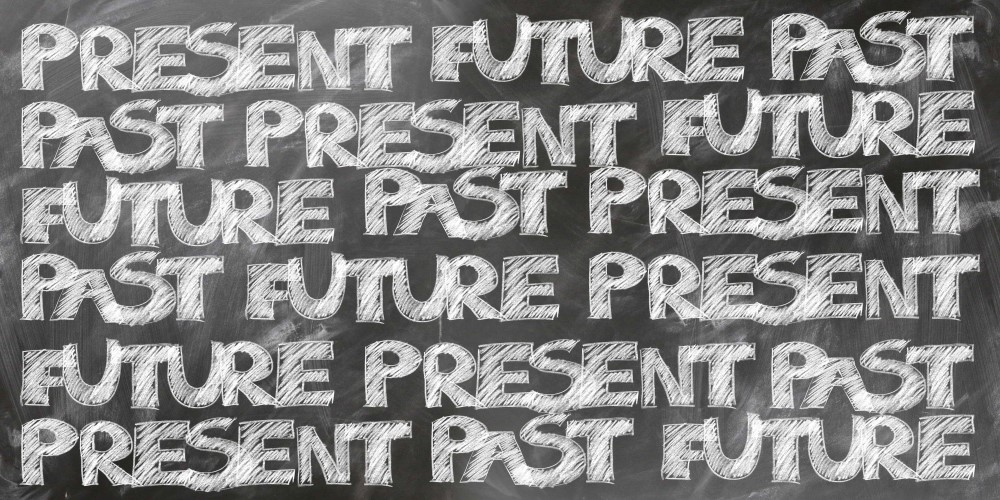Learning a new language can be one of the most difficult things to do.
Out of all the people who get taught a foreign language at school, only a slim percentage feels confident to have a conversation in that language.
Part of the reason we have such great difficulty is the sheer amount of vocabulary and grammar we have to hammer into our heads.
It is simply not enough to know a few bits of a language, only the present tense, or a handful of words in order to chat with someone native.
Even if we have acquired the necessary knowledge, we find ourselves in situations in which we carefully translate sentences word for word in our heads, adding rules for conjugation and trying to remember if that one verb is irregular or not.
This is pretty much the opposite of fluency.
For us to be in a situation where we can freely speak and not only ask for directions, but express feelings and tell stories, takes a huge amount of time and effort.
In fact, 75% of Americans are monolingual.
While Americans might be a special case, looking at English being the number one world language.
They might not feel as inclined to pick up another one.
However, speaking multiple languages isn’t only attractive from a personal viewpoint, but obviously from a professional one, too.
Before we dive too deep into the obvious benefits of learning new languages, I’m sure you are already sold on the idea if you are reading this article.
What is an SRS?
SRS is an abbreviation for Spaced Repetition (learning) System.
As the name indicates, it is designed to learn something, put it aside for a fixed time, and then come back to it later.
This has numeral advantages compared to traditional learning and provides you with a much-needed structure to supplement your learning habit.
Looking at the specifics, you will have a set of amount of completely new vocabulary or grammar rule you will learn every day.
On top of that, after memorizing them, you also have multiple words and rules from past sessions that you retest yourself on.
When you correctly remembered one piece of information, it “advances” to the next stage of your SRS. Which is another repetition of this piece of information after a longer period, gradually increasing the time between periods.
To illustrate, imagine a simple word like “internacional”. The Spanish translation of “international”.
This one should be a pretty simple one to remember.
After studying “internacional” on day one, the day it is introduced to your vocabulary, you retest your knowledge on day two.
If you manage to correctly remember the word on the second day, it “advances” into the next stage, which could be after 3 more days.
Correctly remembered it in stage 3? stage 4 might be 1 week later.
This system keeps on building up until eventually, you repeat it after several months or even a year.
At that point, the word should be imprinted in your long-term memory to the point where you won’t forget it anymore.
But what happens if you fail? what if you don’t remember the word at any of the stages?
You simply put it back to stage 1 and start from scratch.
At the first glimpse, this might seem annoying, repetitive, and frustrating. But these things are part of learning a language.
Additionally, once you manage to get that one really difficult word right, the one that was at the tip of your tongue the whole time but you fell just short of remembering it, it will feel extremely satisfying.
Furthermore, the chances of you ever forgetting that word again are decreased significantly, since it has a special story to it, while also being printed into your brain by your reward-system creating a powerful memory.
Also, if you are having troubles learning a specific word, you should spend more time on it than on words that come naturally to you, sounds logically right?
By resetting your progress with a specific piece of information every time you fail to recall it, the system makes sure you spend a minimum amount of time on the words that come easily to you personally while making sure you don’t give up on certain information because you struggle to properly learn them.
Ensuring that you spend the appropriate amount of time on every word or rule you encounter, perfectly tailored to your specific strengths and weaknesses that might arise in the process.
What fuels the efficiency of this learning system is the way it introduced every piece of information to long-term memory.
Repeating the same word 20 times within 1 hour might make sure you are able to memorize it for the upcoming test in school, but it will only do that.
After several weeks of not looking at the same word, and your short-term memory forgetting about it, chances are high that you have forgotten everything you have crammed for.
Anyhow, if you keep on coming back to the same stuff, on different days with different thoughts and states of mind, you will eventually remember that word like you remember any word from you mother-tongue.
Because when learning a language your goal is to be able to speak, read, and comprehend it as a whole, it important to transfer the knowledge to your long-term memory. Where you access it and come back to it easily and at any point in the future.
To maximize efficiency and effectiveness, make sure to maintain a proper system.
Things like this can get very messy very quickly!
To help you out, I will talk about the different possibilities you have with setting up a system that works for you later on.
What Content should be used to Create an SRS?

Now that we have pinned down the way an SRS functions, let’s take a look at what it should be composed of.
In general, the best way to use an SRS is by utilizing flash-cards.
On one side of the cards, you put the grammar rule, words, or anything else you want to learn. On the other side, you put something that you associate with the piece of information.
This can be, to take the obvious choice, the same word in your mother tongue. Translating “international” to “internacional”.
However, this will teach you how to translate more than it will teach you to fluently and independently use these words. Setting you up for encounters in which you have to translate all of your words manually in your head before you can use them in speech or writing.
If you want to increase your effectiveness and speed up your way to fluency, you can use images, stories, and other anchors you tie this information to.
Consequently, instead of trying to remember the literal translation of “horse” in a foreign language, you can draw a horse on one side of the flash card.
Having the creation process linked to the word will improve the chances you remember it significantly.
Other than that, try adding a personal touch to your learning process.
Instead of drawing a horse, you could also write down things that describe a horse like “four legs, zebra without stripes pulls carriages”
Or you write down something that reminds you of the pet horse you had back in the day or still have.
Tackling the memorization process, and customizing it to fit your personal experiences and emotions will greatly reduce the time you need to remember the information at hand.
What SRS should you use?
If you want to start learning with an SRS, there are two main options you have.
1. Physical SRS
A physical SRS is created by creating every flash card with handwriting and drawing.
This takes huge amounts of time since there are countless words and rules to be learned when mastering a language.
Despite that, it is not the most demanding work out there.
Just sitting down to write and draw a bit can be pretty relaxing and you might even end up enjoying it.
In addition, it promotes the speed of your comprehension.
You can either take aside 15 minutes a day to dedicate it to the creation process, or you do it irregularly.
An example would be if you find yourself on a Sunday wanting to just chill out and relax for yourself, you can pick up creating these flash cards and hassle it out in a few hours.
Another disadvantage though, is that the physical organization of the flash cards has its difficulties.
You have to make sure not to forget about putting them into their correct stashes, to find an appropriate space where they are accessible but not annoying, and to not lose track of how you manage your SRS.
2. Digital SRS
If organizing is not your strong point, you have limited space, or don’t feel like creating all the flashcards with drawings and handwriting, you can rely on digital solutions.
One example would be Anki, this is an application which helps you to create your own flashcards fast and easy on the pc.
While the creation benefit is lost with this method, it offers other advantages.
For example, you can create flashcards that play sound files or simply copy google images into them.
This speeds up the process of creating the cards while offering a wide range of possibilities to customize them.
On top of that, the organization is obviously easier, too.
Also, since there is an app for the mobile phone available, you can carry your flashcards anywhere you want, picking up where you left the last time.
Conclusion

Setting up and using an SRS can greatly improve your progress to fluency.
Still, one of the most important things in using one, or learning a language in general, is to make a daily habit out of it.
30 minutes every day will be enough to greatly improve quickly and to see fast results.
As with most things in life, consistency is key!
I can definitely recommend using an SRS or at least trying it out to see what it can do for you.
Now it is time for you to pick your preferred system and to create a new habit. If you can manage to do these things, your language skills will improve greatly and sustainably.
Remember to use associations and be creative with your flashcards!
Also, don’t think about cheating the system, the only one you are cheating is yourself!
Any experiences with an SRS? Let us know in the comments!
Thank you for reading!
Cheers,
Matthis




